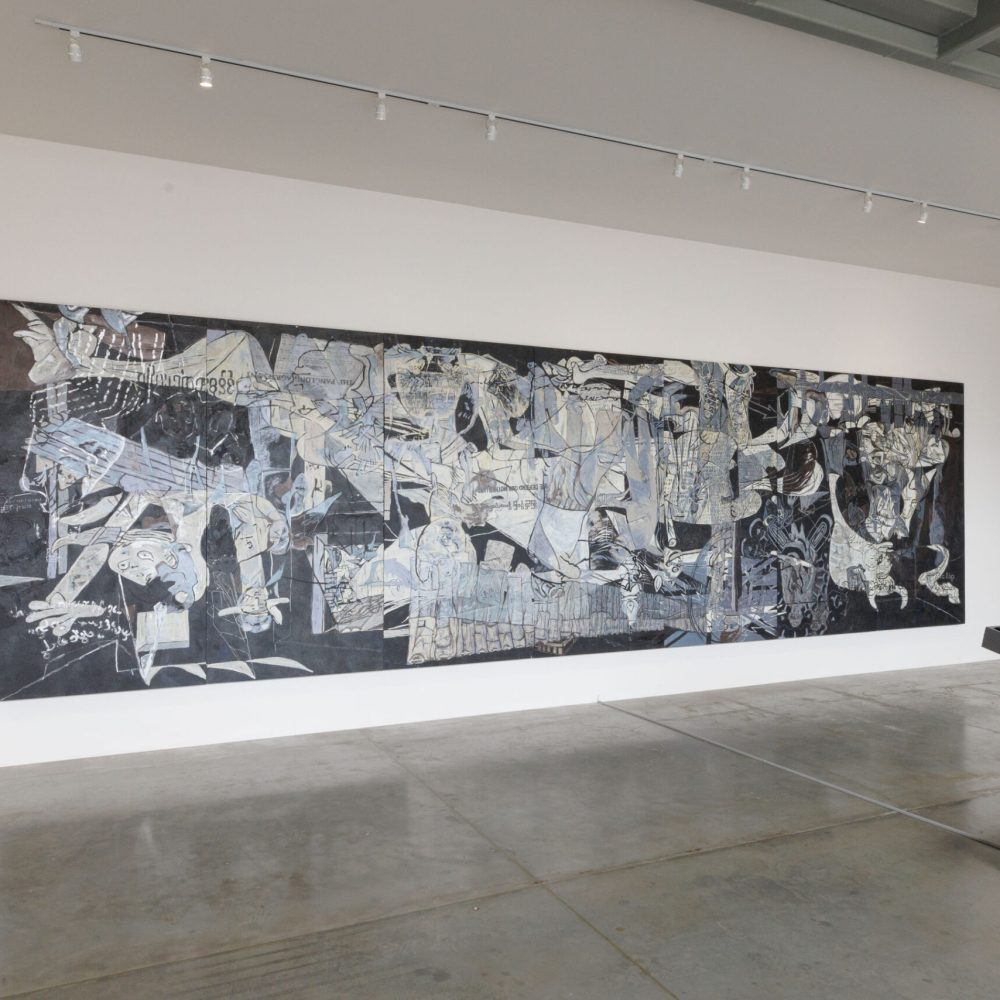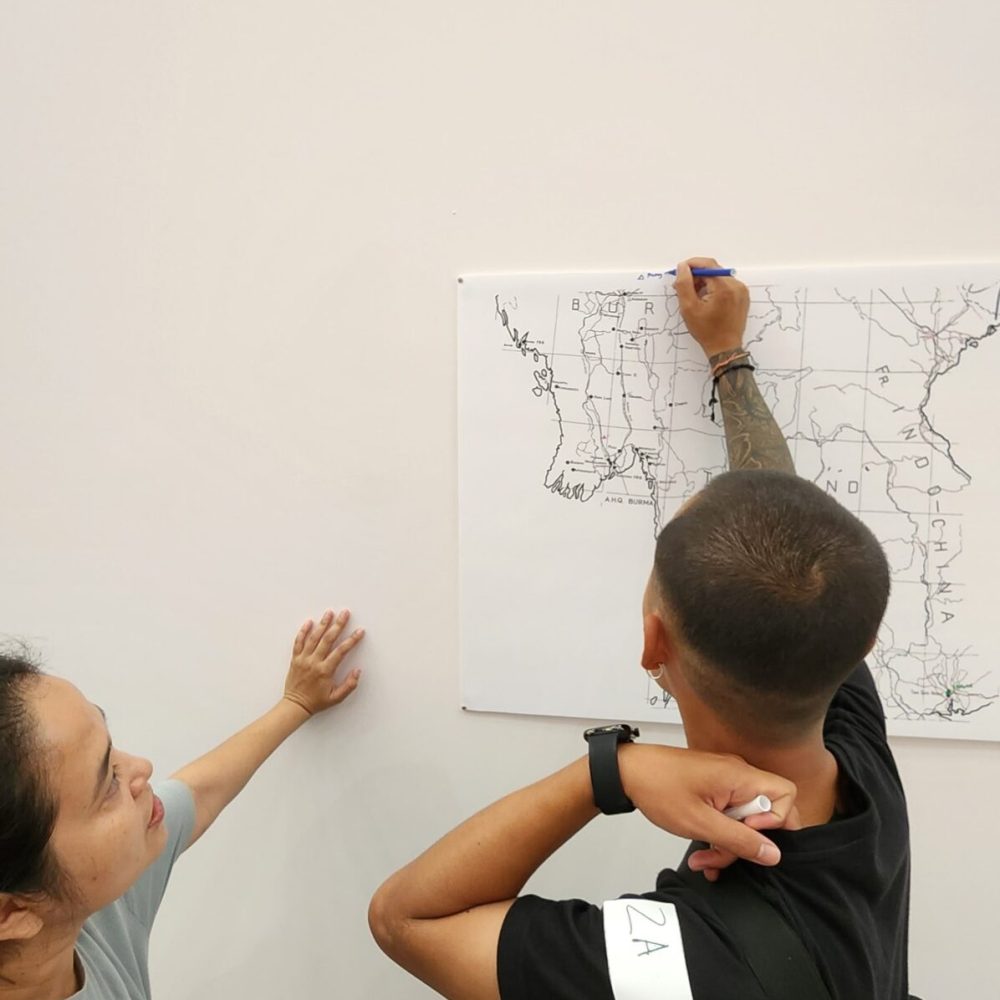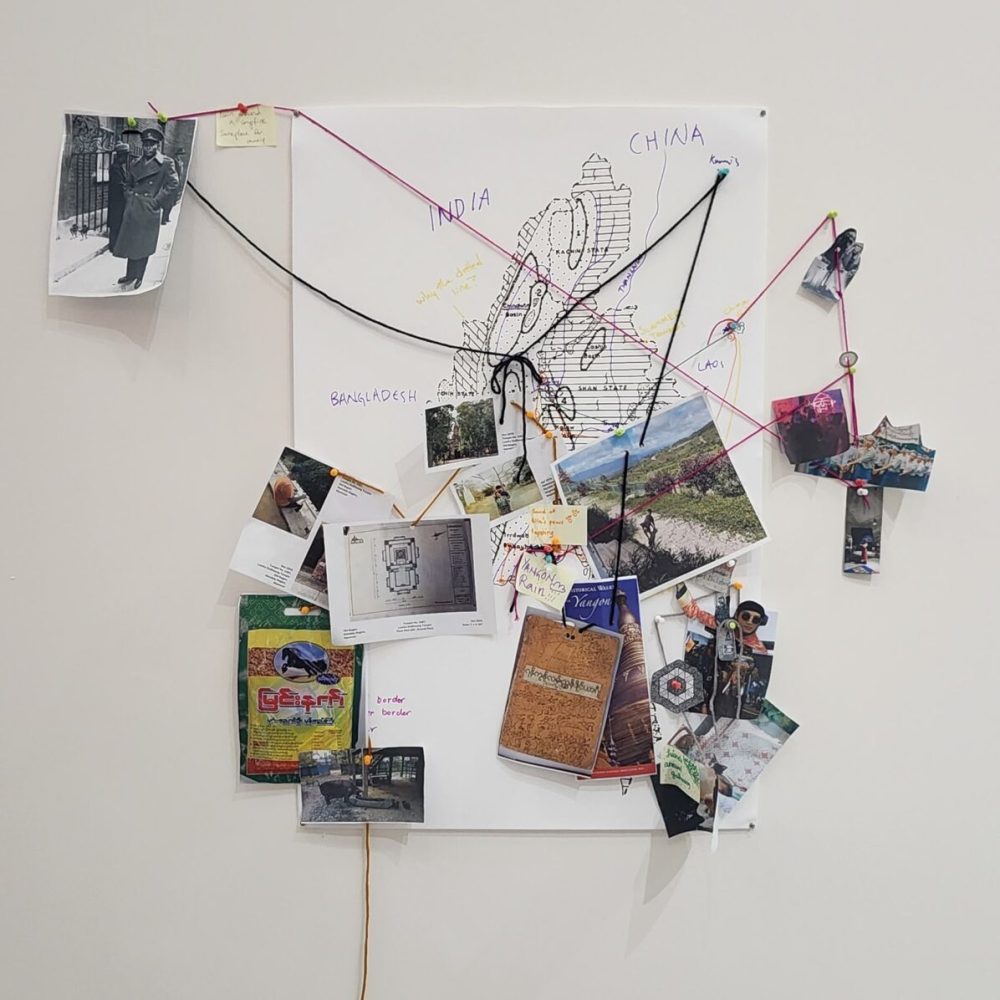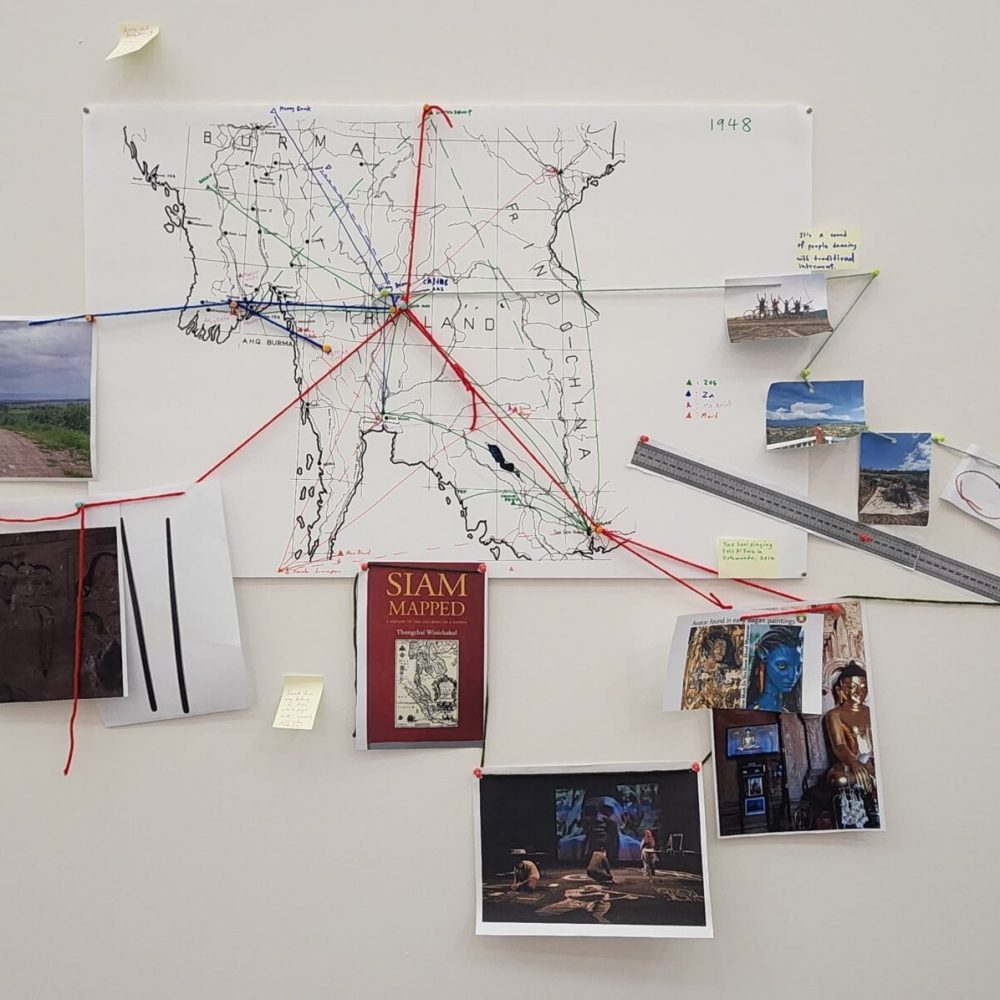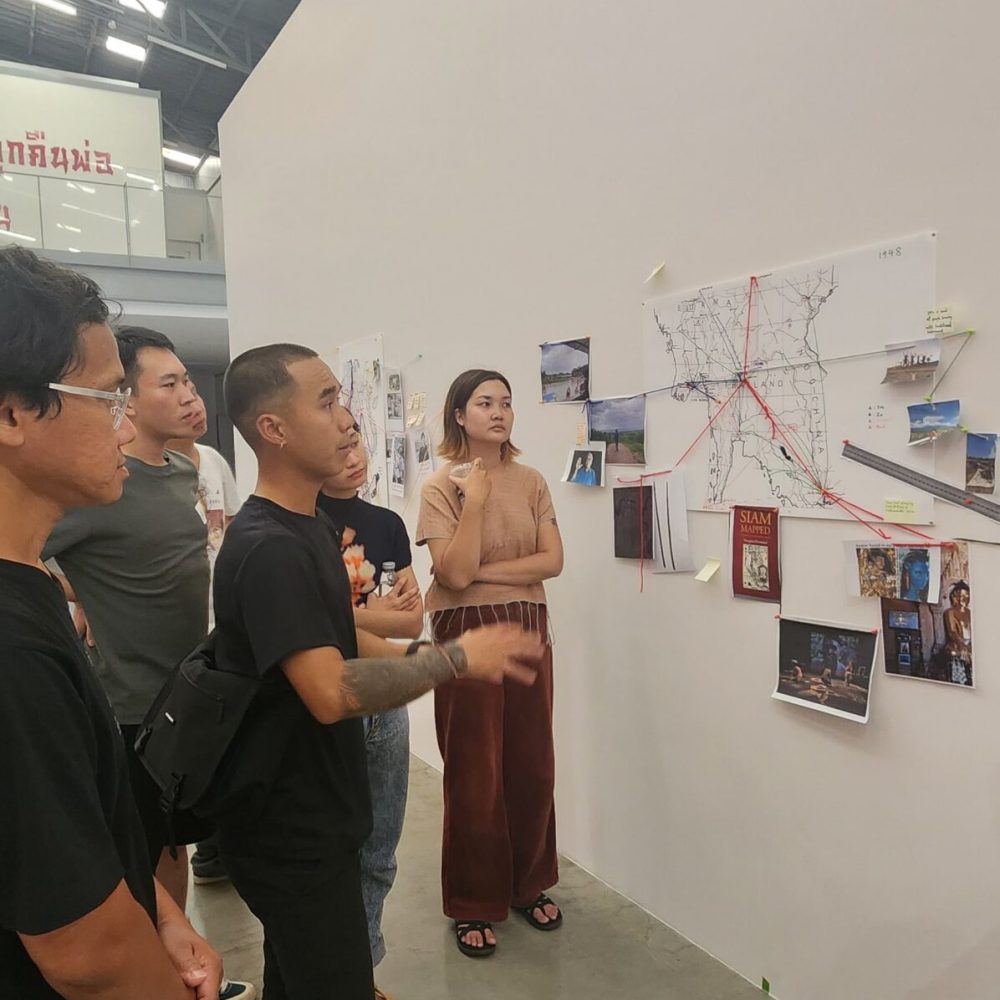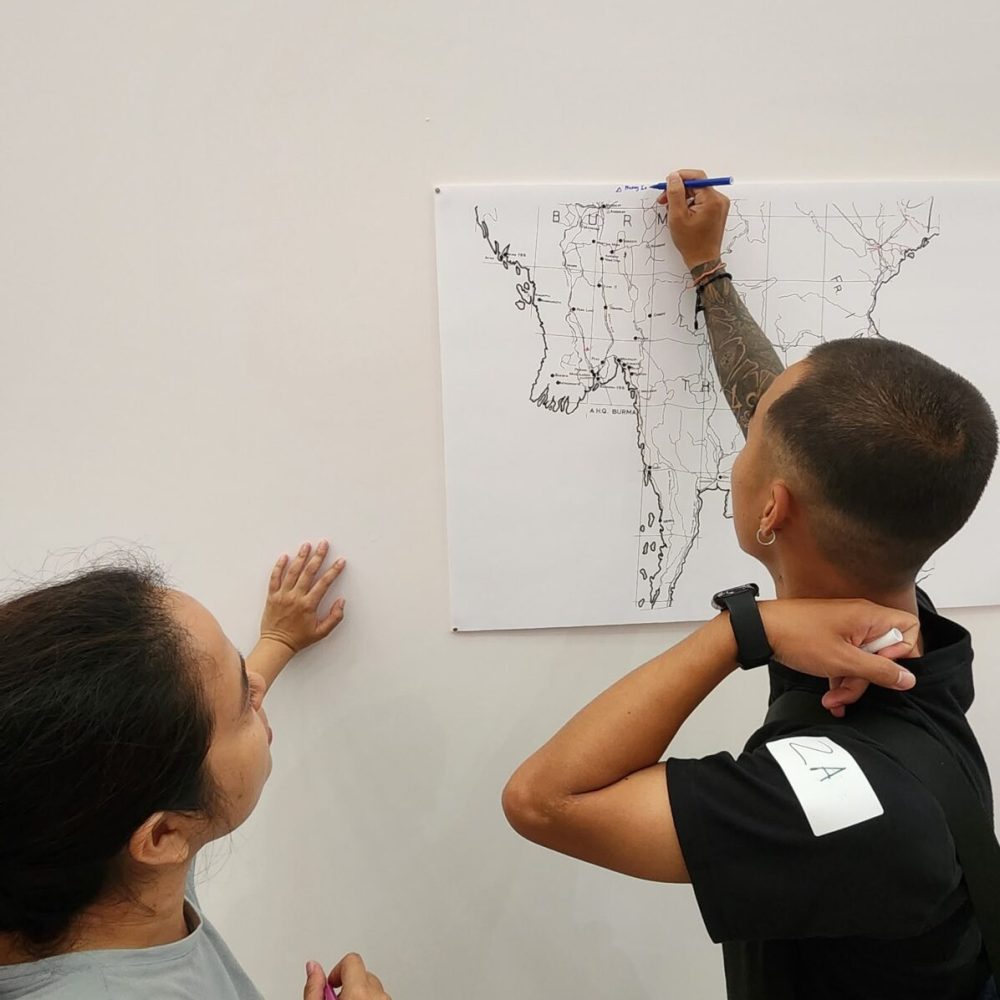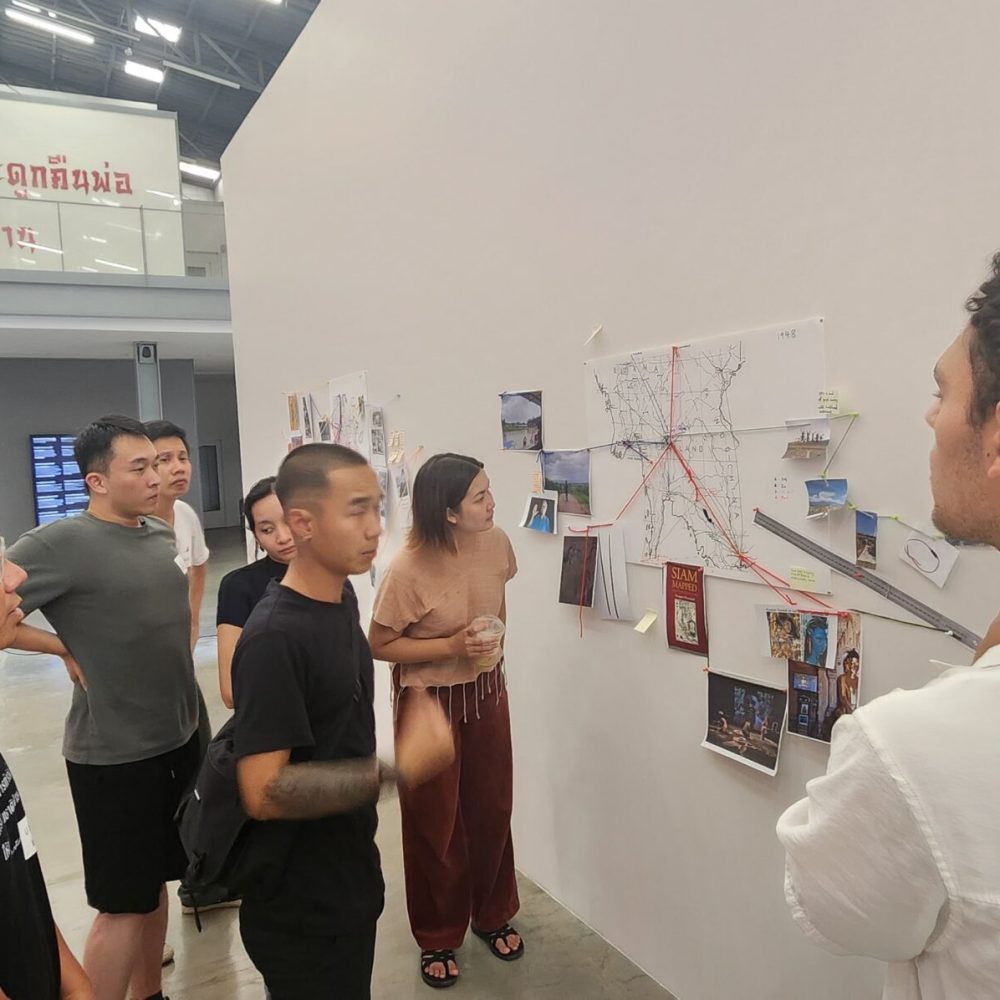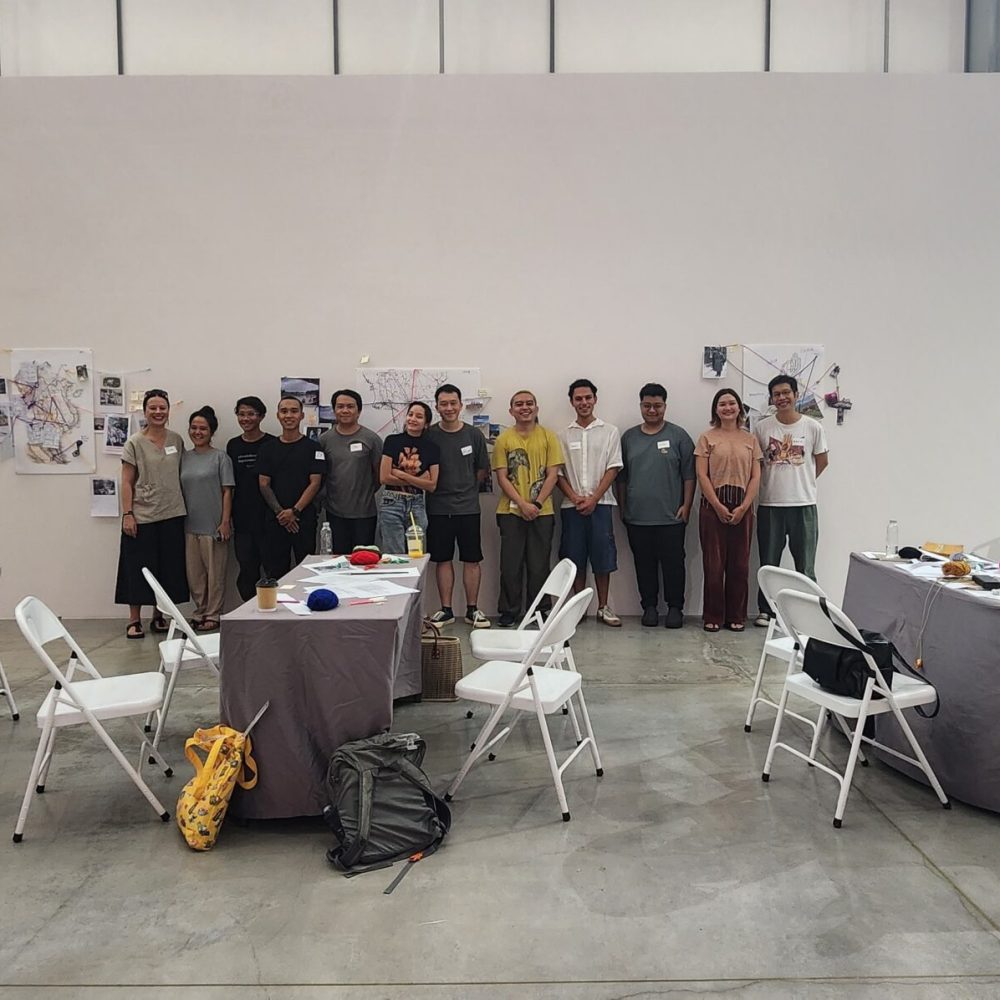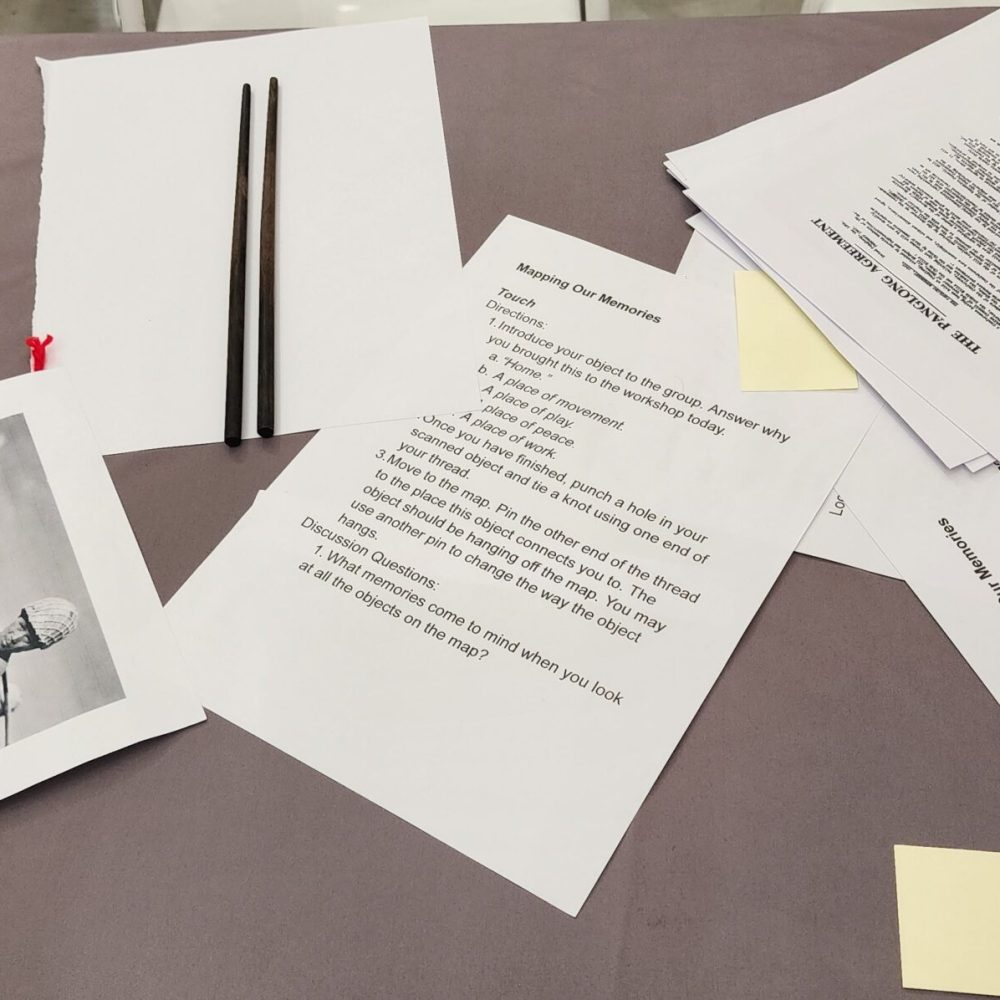PROGRAMS
James Roberson
1 June, 2024
in-tangible institute welcomed James Roberson as its inaugural ‘Creative In Residence’ from 1 June – 15 July 2024, with thanks to the POZEN Family Centre for Human Rights, University of Chicago.
James’ residency ran in conjunction with two in-tangible institute programs. While in residence, he had been working towards the realization of a community workshop with select members of the Myanmar migrant community in Chiang Mai. This private event hosted by MAIIAM Contemporary Art Museum is followed by a public music event on 6 July.
James’ workshop (see image carousel below) responded to Burmica, a large-scale artwork by Thai artist Ubatsat. The painting collages images from Burma/Myanmar’s calamitous history and is an integral part of in-tangible’s curated exhibition
Living Another Future, on view at MAIIAM 24 May 2024 – 3 June 2025. Secondly, James’ research engages the themes of POLLINATION Edition 4, an exploration of faith, migration, and politics between the contexts of Malaysia and Myanmar curated by Mark Teh and Diana Nway Htwe.
…..
James’ Impact reflection towards in-tangible’s Creative In Residence.
In the past I found myself using the maps of cities to understand and question the city. Why is this palatial Kasikorn Bank across the street of these tennis courts, someone paid for it? What was it before, who is it catered to and why, and who signed the check? And in Chiang Mai this was no different. The city has changed and is continuing to change because of new arrivals, whether people from Myanmar fleeing violence and instability intermittently since 1988 or leaving draconian COVID-19 restrictions in other parts of Asia searching for the Thai “sabai sabai.” I was curious how this city changed and how different types of people showcased their agency.
I learned of the echo chambers during my first few days over an exquisite Burmese lunch with a pair of Thai human rights professionals. The echo chamber came up again over drinks with a refugee from Da Wei and another from Yangon, and coffees with the Thai translator and from DJs across the region concerned about politics. Silos exist based on race, privilege, education, professions, and other identities. Yet with greater levels of crises, especially with the urgency and gravity of the situation in Myanmar, these silos cannot exist for community care and advocacy.
And some of these silos are constructed through mapping strategies that have created narratives around identities. Think of the British colonization of “Burma” and of the cultural homogenization campaign called Burmanization. Of the destruction of Yangon and the creation of the grid system. And think of the ethno-nationalist armies in the country resisting the junta and why they believe in an ethnic-state. And if you were to come to Chiang Mai from Myanmar, how do you identify yourself? What I attempted to do with the de[slash]re-construction workshop was deconstruct and reconstruct maps housed in the British Library to explore the different ways that place and narrative define identity. Bringing people from across Myanmar and others who are thinking about the country across Southeast Asia from different identities was a chance for us to begin conversations that question the silos that now exist as a community in the city.
And music was baked into the project because good music gets people from different backgrounds into a room. And what happens when you bring people from different “worlds” together in the name of good music? The worlds begin colliding and people learn of each other and of the city in a different way, hopefully cross pollinating their worlds in the process.
Across the world we exist in echo chambers by our own nature but also, now, the algorithm. I believe that we need to stop the echoes and find ways to imagine new radical possibilities by coming to terms with difference. And through space, sound, and maps I hope to continue finding ways to bring people together to question ourselves, difference, and stop the echoing.
….
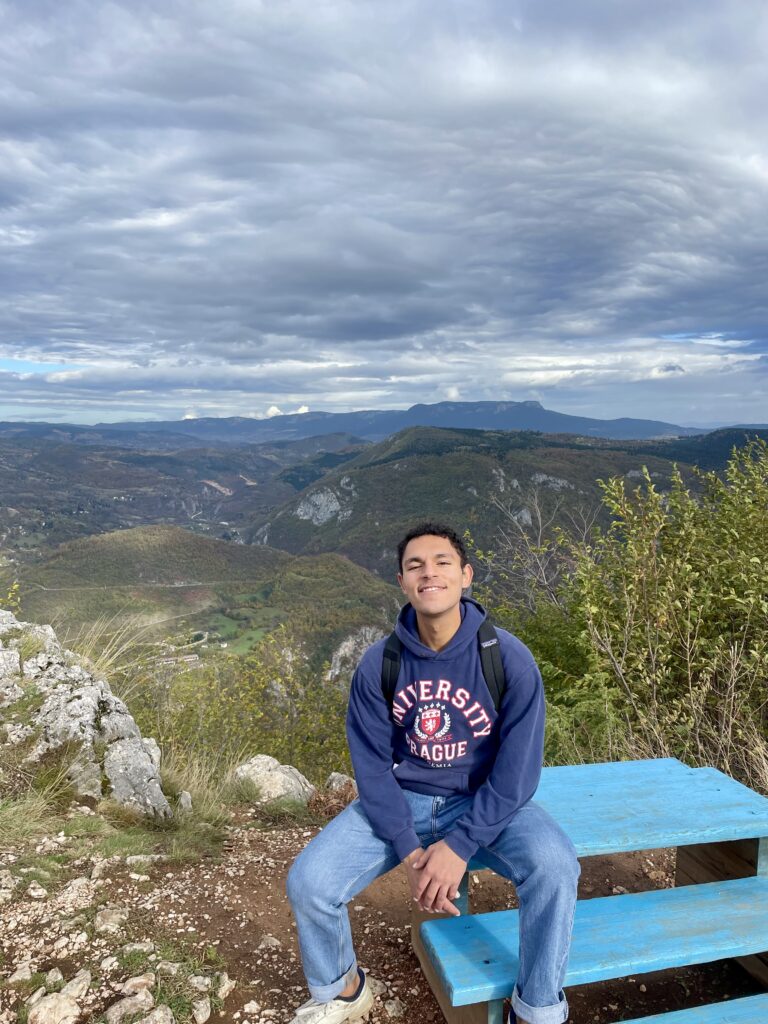
About James
James Roberson (he/him) is a student from Southern California, majoring in Political Science and Human Rights at the University of Chicago and the London School of Economics.
Between Chicago and London, James writes and designs self-published “zines” that explore relationships between institutions and the individuals they govern, with the most recent edition exploring Bosnia and Herzegovina’s post-conflict struggles. Additionally, he hosts a weekly radio show titled mental clutter that highlights music from around the world and the alternate political realities music creates, from the explosion of Kampala’s DIY techno amidst the harshest LGBTQ+ laws in the world to São Paulo’s baile funk conceived by Afro-Brazilians in favelas who continue to resist state persecution and marginalization.
James has also worked in the world of criminal justice as a creative writing facilitator at the Cook County Jail and at the Manhattan District Attorney’s Office, tasked with realizing the Gun Violence Prevention Grant and analyzing data for prosecutorial reform.
About POZEN Family Centre for Human Rights
The Pozen Family Center for Human Rights at the University of Chicago supports innovative interdisciplinary teaching and research initiatives that critically explore the theory and practice of global human rights.

